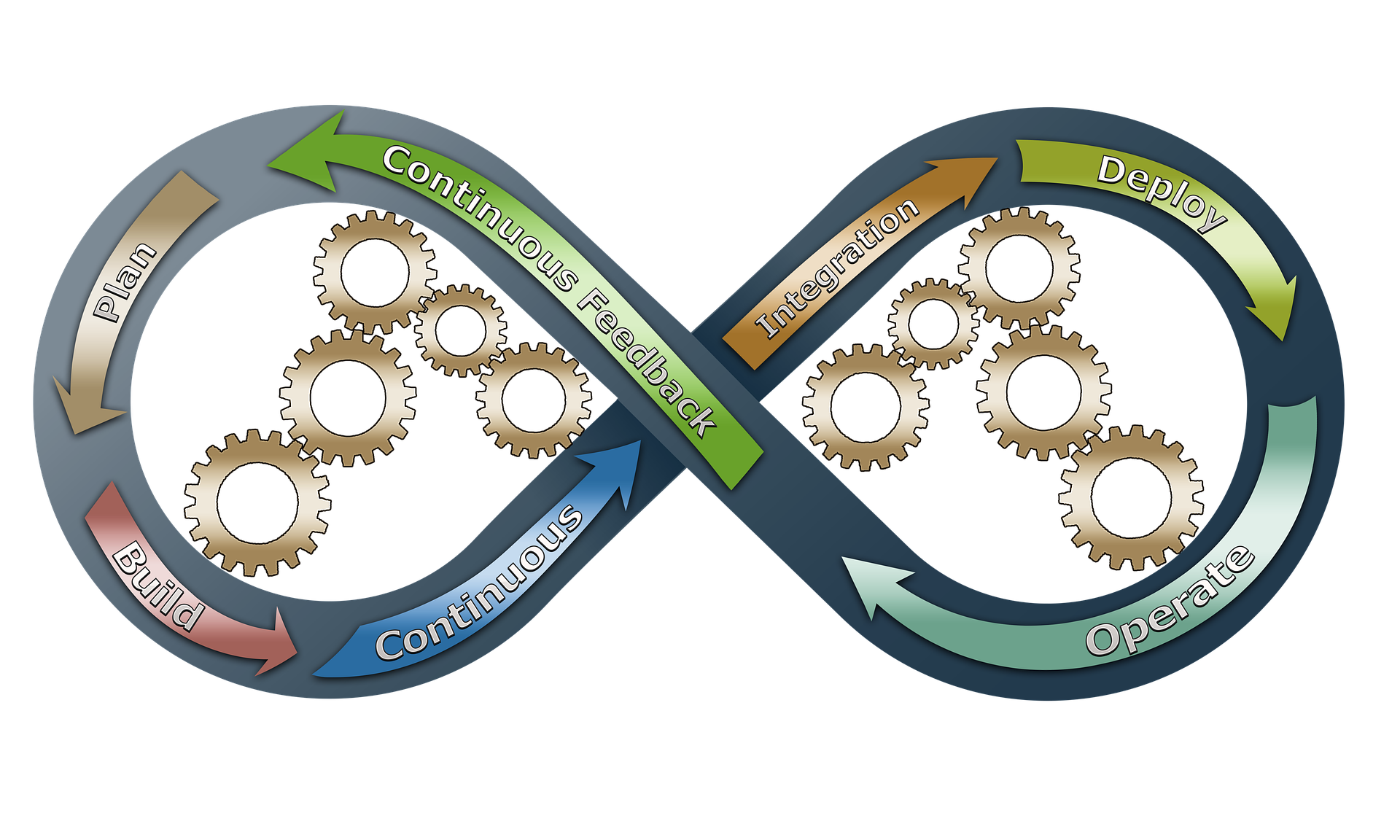Subscribe to the blog
Women in tech have the drive and ambition to be leaders. What’s holding them back?
We've all noticed it but the numbers prove it: women are vastly underrepresented in technology jobs.
According to the National Center for Women & Information Technology (NCWIT), only 25% of computing occupations were held by women, yet women made up 57% of all professional occupations.
For women of color, the number is virtually nonexistent. Only 1-3% of tech jobs are held by Black and Latina women.
The researchers over at The Glass Hammer and Accenture decided to team up and get to the bottom of this occupational gender gap.
They surveyed almost 200 women in junior and mid-level positions and released a report titled Women in Technology: Leaders of Tomorrow.
For the remainder of this post, we’ll delve into their findings and reveal some of the problems and solutions presenting themselves to women hoping to become leaders in the tech space.
Let’s start by getting a sense of who the women in this study are and what they aspire to achieve.
The One Major Character Trait All Women in The Study Share
The Glass Hammer, co-sponsors for this study, is a group dedicated solely to helping women advance in their careers. The women surveyed for their study were readers and subscribers to their online publication.
So it’s no surprise that 85.3% of respondents said that they hope to receive a promotion in the next 3 years and 62% said they want a C-Suite or Senior Management position in the future.

Most women surveyed are highly ambitious and expect to advance their careers steadily long-term.
This benefited the study because it means Glass Hammer and Accenture didn’t survey random women working in tech, they surveyed the most ambitious women. The women who want the jobs and responsibilities that their male counterparts mostly occupy - providing a deeper insight into the reasons for the gender gap in technology jobs.
Which brings us to the first question...
Are Companies Vocally and Actively Supporting Women?
One of the first question’s Glass Hammer and Accenture asked survey respondents was whether or not the company they worked for vocally supported women’s advancement in the workplace and if so, whether or not they followed through on those sentiments.
While most women experienced vocal support for women leadership, much fewer saw it in action.
It seems the majority (44%) of companies that these women work for paid lip service to helping them move up in the career ladder in tech.
However, that number is drastically reduced to just under 25% for companies who actually follow through on their promises to help women get promoted.
This is problematic because there does seem to be a connection between women who aspire to progress in their careers and companies offering opportunities for advancement. 71% of women who said they aspired to a C-Suite position also said their company offers leadership programs and training for women.
It might just be that when female employees see their companies following through on their commitment to promote women, these employees become more committed to being promoted.
The Role of Role Models in the Advancement of Women Leadership
Everyone needs role models and women are no different. There definitely seems to be a strong correlation between having higher career aspirations (like getting a C-Suite position) and having a positive role model.
Almost 80% of respondents said they had a role model. Out of that group, 42.9% said they had both male and female role models.
Most of the women surveyed revealed that they have both male and female role models.
Out of all the respondents with C-Suite ambitions, 83% said they had a role model.
However, 24% of respondents who had absolutely no C-Suite aspirations said they don’t have a role model.
This may just be a case where women with higher goals feel they need a role model to succeed. But it may also be a case where women need someone to identify with to inspire them to reach their full potential and shoot for the stars.
So who are the role models the survey respondents look up to?
Well, 86 different women were named as role models and the following names were mentioned 2 or more times:
- Marissa Mayer (15.1 %)
- Sheryl Sandberg (11.6%)
- Padmasree Warrior (7.0%)
- Carly Fiorina (1.6%)
- Meg Whitman (1.6%)
- Ursula Burns (1.1%)
- Virginia Rometty (1.1%)
- Stephanie “Steve” Shirley (1.1%)
Do Women Have “Sponsors” in the Workplace?
This is a tricky question to answer, partly because the women surveyed seemed to be confused about the definition of a sponsor.
Here is the definition of a sponsor that Glass Hammer and Accenture provided to respondents before asking them questions:
“A sponsor is someone who champions your career advancement, nominating you for stretch assignments or promotions and talking you up in the discussions you’re not a part of.”
77% of respondents said they had heard the term “sponsorship” before, but only 25% said that they had one.
The funny thing is, almost 67% of women said that they had “a more senior person at your company nominate you for a special assignment or advocate for your promotion.” Which, in essence, is what a sponsor does.
But here’s where the real confusion sets in:
79% of respondents said that they had a “senior person at your organization who you feel committed to supporting, by meeting project requirements or coming through on emergency assignments.”
That’s not the definition of a sponsor. That’s the definition of a mentor. For many women, it seems they don’t quite understand the difference. Well, here it is:
A mentor may help you move forward, but isn't as invested in your progress as you are in theirs. A sponsor gives you the feeling that you’re somewhat of an equal, or at the very least, they have close to as much of their energy invested in you and your success as you do in them.
Almost 67% of the women surveyed had at least one person act as a sponsor.
The Significance of Networking for Women Leaders
Women are certainly interested in networking, both within and outside of their company.
The largest percentage of women (34.8%) participate in networking events 4 times a year.
When all the data is taken together, Glass Hammer and Accenture found that simply having a network at their company correlates to women participating in leadership development courses.
And if women are participating in these courses, we can assume (and the data positively correlates) that these women have a supportive company culture, complete with male champions, sponsors, and vocal support for female advancement up the corporate ladder.
There didn’t seem to be any correlation between having a network and the desire for a C-Suite or Senior Management position, though.
Glass Hammer and Accenture asked respondents how their companies could improve their women’s networks. Here’s what they said:
- “Try to ensure that it’s taken seriously by senior management - that they don’t just pay lip service to it.”
- “I want a woman mentor assigned to me through perhaps a survey that will match someone that can help me best. Or perhaps a meet and greet that’s sole purpose is to match people.”
- “Usually I find some become more of a venting session of work life balance which turns off the younger women. They should be more focused on learning skills - technical or managerial.”
- “Be more assertive about promoting women’s inclusion in middle upper level positions in areas outside of finance and human resources. Be heard by management and rate them for whether or not they have created a level playing field in their section of the business.”
- “Focus on the facts of why women leave, why they don’t get promotions as often as men, and start campaigns to solve this.”
How Leadership Courses Positively Correlate to Promotions and C-Suite Aspirations
48.4% of survey respondents said they had taken a leadership course at their company and 46.7% said they would like to.
Some reports suggest that there is a connection between formal learning programs and career advancement. A study conducted by Catalyst found that 37% of women were promoted within a single year of completing a training course.
And 69.7% of respondents who took a leadership development course said that they aspire to a C-suite or Senior Management position.
To understand where the respondents needed help the most, Glass Hammer and Accenture asked them to choose the top 2 courses they considered the most useful for career advancement. Here’s what they said:
The majority of respondents wanted a course covering one of the most important leadership traits.
Nearly 48% of respondents chose “developing executive presence” as the top skill they would like to learn through a development course. While many women reported being confused about what “executive presence” (EP) is, nevertheless, it’s a critical skill to develop. A study by the Center for Talent Innovation found that EP accounts for 26% of what it takes to get a promotion.
How Men Champion Women Leadership
As you saw earlier, 57% of respondents had either all male role models or a mix of male and female while 14% of respondents said they had only female role models.
And since male leaders make up the dominant group in most companies, they play a substantially large role in helping to level the playing field and support their female colleagues.
The good news is that 51% of respondents said they have male champions at their workplace working to help women advance in their careers.
Fortunately for ambitious women, there are many men ready to help them advance their careers.
The Traits Women Use to Describe Themselves and the Traits They Believe Leaders Possess
The last thing Glass Hammer and Accenture wanted to investigate were the traits women in tech believe they themselves possess and the traits of leaders they look up to possess.
The researchers provided respondents with a list of 10 traits and asked them to choose the top 3 they would use to describe leaders and the 3 they would use to describe themselves.
There was only one similar trait chosen which was the top trait: Collaborative.
There were a handful of interesting disparities between these traits. For example, “Innovative” is the last trait respondents used to describe themselves but it’s the second trait for leaders. Even more interesting is “Honest” being the second trait to describe themselves, while respondents put honest as the ninth trait to describe leaders.
What is this data telling us?
One interpretation is that the respondents don’t believe they possess the traits of leaders (yet). Or perhaps, the respondents believe they possess superior traits to the people they see as leaders.
One thing is for sure, more investigation into leadership traits is necessary.
Recommendations for Empowering Women Leaders in Technology Companies
Motivating and demotivating factors can both be identified and isolated to create an ideal environment for supporting the career advancement and promotion of women leaders in tech.
Here are 3 major takeaways you can apply in your company:
- Make sure that technology teams aren’t being “gendered,” that is, perpetuating norms regarding “jobs for men” or “jobs for women.”
- Keep in mind that leadership jobs are often associated with traditional characteristics - encouraging some women who become leaders to adopt traditionally “male” behaviors like a “command-and-control” attitude. Attempt to remain open to other characteristics and don’t be too quick to reinforce stereotypes or the status quo because it can have a negative effect on female leadership.
- Create sponsorship and leadership development programs for your company to help ambitious women find sponsors, hone their skills, and remain motivated to achieve the C-Suite position they want.




